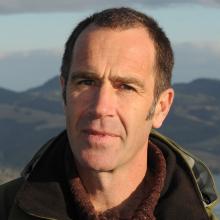

Many of the long conversations I’ve been having are about how we can boost action on climate. Like many people, I’m seeing the potential for system change with the establishment of the Climate Change Commission, with many local authorities announcing important carbon reduction targets and conducting risk assessments.
As one of the stakeholders consulted on the Otago Climate Change Risk Assessment, I agree with the statement in the report that says governance ‘‘[n]eed[s] to integrate climate change into existing plans, approaches, design codes, and all decisions should be taken with a climate change lens’’.
I made that point during my submission on the Otago Regional Council’s Long Term Plan earlier this month as well. Councils may want to do better, and local government is where government plans and policies get implemented, but we need bold leadership.
Climate justice must be at the heart of that transformative work we need to both reduce emissions and adapt to impacts under way. I don’t think we can leave it to chance or simply hope for good outcomes. To that end, in 2021 I joined forces with others who feel the same way in a consultancy called ‘‘Climate Navigator’’. We argue that ‘‘Society must fundamentally transform within a decade to win the war on climate change. The scale and pace of change required is unprecedented and needs everyone to rise to the challenge’’.
For me personally there’s nothing so rewarding as working with others who respect the climate science and who want to work with organisations across the public and private sectors to find pathways to success through bold climate action.

And adaptive planning is at the heart of the Infrastructure Commission /Te Waihanga’s consultation document issued earlier this month. Te Waihanga is developing a 30-year infrastructure strategy, to be tabled in Parliament in late 2021. This is so important because much of our infrastructure is in need of renewal, while many urban and rural areas are experiencing growing demands for energy, telecommunications, social infrastructure, water, transport and waste and resource recovery infrastructure. Our infrastructure should be planned and delivered to enhance, not negate, wellbeing, and this means paying acute attention to climate impact.
Budget 2021 has dominated the news, and while the budget did deliver much needed gains for some of our most vulnerable by increasing benefits and expanding the Warmer Kiwi Homes Scheme, it didn’t do much to support this generation’s ‘‘nuclear-free moment’’: climate breakdown. More important long-term climate gains are likely to come from the 30-year infrastructure strategy from the New Zealand Infrastructure Commission / TeWaihanga, informed by independent, evidence-based analysis.
We live in a society where democratic input is valued, and it is important for our experience from the flax-roots to be heard by decision-makers. In a world where discussion and debate is largely curated by powerful corporate interests we need to speak up and stand up for people and planet.
So please take some time by June 24, to consider our ‘‘system of interconnected physical structures that employ capital to provide shared services to enhance wellbeing’’ and make a submission on He Tuapapa ki te Ora | Infrastructure for a Better Future. We need bold climate action for people and planet.
As I enjoy the changing season, with the last of the autumn colours, I also think about what life will be like for my children and their children. I want them to feel safe riding bikes in our cities, to be able to swim in our rivers and lakes when summer returns, to be able to enjoy zero carbon travel and have meaningful work that sustains them and the planet. We can transform the system and build a better future. We all need to be part of the solution.
The report
The New Zealand Infrastructure Commission / TeWaihanga: infracom.govt.nz












